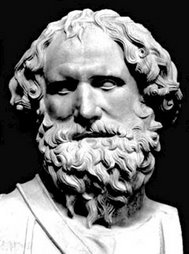Drugs for the body. Books for the mind and soul.
I'm often frustrated by the lack of selection in my local book shops. Sadly, my local book shops (Borders, Barnes & Noble) are your local book shops.
"If you want proof that a cultural divide separates Europe and America," the New York Times observes, "the book business is a place to start. In the United States chain stores have largely run neighborhood bookshops out of business. Here in Germany, there are big and small bookstores seemingly on every block."
How do the Germans do it? "Germany’s book culture is sustained by an age-old practice requiring all bookstores, including German online booksellers, to sell books at fixed prices. . . . What results has helped small, quality publishers like Berenberg. But it has also — American consumers should take note — caused book prices to drop. Last year, on average, book prices fell 0.5 percent."
Although I'm not sure I agree w/ Germany's solution to this problem--price fixing--I'm jealous of its selection--Last year 94,716 new titles were published in German. In the United States, with a population nearly four times bigger, there were 172,000 titles published in 2005.
Here is a link to the full article, "German Border Threat: Cheap Books."


